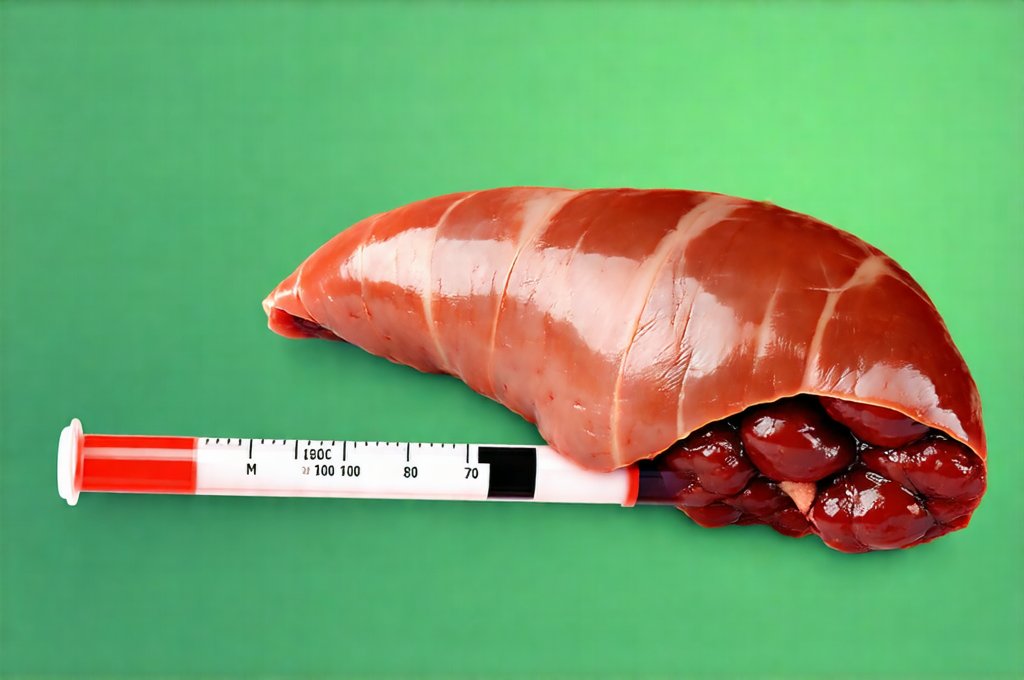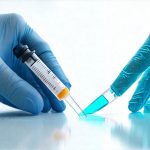The liver is arguably one of the most resilient organs in the human body, constantly working behind the scenes to perform over 500 essential functions. From filtering toxins from our blood to aiding digestion and storing energy, its role is indispensable for overall health and wellbeing. Because it’s so vital, changes in liver function often show up in routine blood tests, which can understandably cause anxiety. It’s important, however, to understand that abnormal blood test results don’t automatically equate to serious liver disease. Many factors – from temporary lifestyle choices to medication side effects – can influence these numbers, and a single abnormal result rarely tells the whole story.
This article aims to provide comprehensive information about when you should be concerned about elevated liver enzymes or other indicators of potential liver issues on your blood tests. We’ll delve into what those tests measure, common causes beyond serious disease, and when seeking further investigation is absolutely crucial. It’s a guide designed not to scare, but to empower you with knowledge so you can have informed conversations with your healthcare provider and understand the next steps if necessary. Remember, early detection and appropriate management are key for maintaining liver health and preventing complications.
Understanding Liver Function Tests
Liver function tests (LFTs) aren’t actually measuring how well the liver functions in a comprehensive sense – they primarily assess damage to liver cells or problems with bile flow. They’re a collection of blood tests that provide clues about the state of your liver. Several key enzymes and proteins are typically measured, each offering unique insights:
- Alanine aminotransferase (ALT) & Aspartate aminotransferase (AST): These enzymes are released into the bloodstream when liver cells are damaged. Elevated levels often indicate hepatitis or other forms of liver cell injury.
- Alkaline phosphatase (ALP): This enzyme is found in both the liver and bile ducts. High levels can suggest blockage of the bile ducts (cholestasis) or bone disorders.
- Bilirubin: A waste product created when red blood cells are broken down, normally processed by the liver. Elevated bilirubin can indicate liver damage, blockage of the bile ducts, or excessive breakdown of red blood cells.
- Albumin: A protein made by the liver that helps maintain fluid balance in the body. Low albumin levels can suggest chronic liver disease.
- Prothrombin time (PT) / International Normalized Ratio (INR): These measure how long it takes for blood to clot and are affected by the liver’s ability to produce clotting factors. Prolonged PT/INR can indicate severe liver damage.
It’s crucial to remember that LFT results should always be interpreted in context. A slightly elevated ALT, for example, might not warrant immediate concern if you exercise vigorously or recently started a new medication. However, significantly elevated levels across multiple markers are more indicative of a problem requiring further investigation. Your doctor will consider your overall health history, symptoms (if any), and other test results to reach an accurate diagnosis. If you struggle with discussing these concerns, consider resources on how to talk to your doctor.
Common Causes Beyond Liver Disease
While LFT abnormalities can signal liver disease, it’s vital to understand that many common factors unrelated to serious pathology can also cause fluctuations in these numbers. These include:
- Medications: Numerous prescription and over-the-counter medications (including some pain relievers, statins, and antibiotics) can potentially affect liver enzymes. This doesn’t necessarily mean the medication is harmful; it might simply require monitoring or a dosage adjustment.
- Alcohol consumption: Even moderate alcohol use can sometimes elevate LFTs. Excessive drinking is a well-known cause of alcoholic liver disease but even occasional binge drinking can temporarily impact results.
- Non-alcoholic fatty liver disease (NAFLD): Increasingly prevalent, NAFLD is often linked to obesity, diabetes, and metabolic syndrome. It doesn’t always cause symptoms in its early stages.
- Muscle injury: Because AST is also found in muscle tissue, strenuous exercise or muscle trauma can temporarily increase AST levels, potentially mimicking liver damage.
- Certain dietary supplements: Some herbal remedies and supplements have been linked to liver toxicity, so it’s important to inform your doctor about everything you are taking.
It’s essential to provide a complete medical history, including all medications (prescription, over-the-counter, and supplements) and lifestyle habits, when discussing LFT results with your doctor. This helps them differentiate between benign causes and potential liver issues, avoiding unnecessary worry or delays in treatment if needed. A repeat test might be ordered after some time to see if the numbers normalize, particularly if the initial elevation was mild and there are no other concerning symptoms. Understanding foods to avoid can also help manage your overall health.
When Should You Be Concerned?
If your blood tests reveal abnormalities in LFTs, several factors should raise a red flag and prompt further investigation:
- Consistently elevated levels: A single abnormal result isn’t always cause for alarm, but consistently high levels on repeat testing are more indicative of an underlying issue. The degree of elevation matters too; significantly higher values generally warrant quicker attention than mildly elevated ones.
- Accompanying symptoms: Symptoms like jaundice (yellowing of the skin and eyes), abdominal pain, fatigue, dark urine, pale stools, swelling in the legs or ankles, or easy bruising should be taken seriously and prompt immediate medical evaluation. These are often signs of more significant liver problems.
- Known risk factors: If you have a family history of liver disease, engage in heavy alcohol consumption, have diabetes or obesity, or have been exposed to hepatitis viruses, you’re at higher risk for developing liver issues, making any abnormal LFT result more concerning.
It’s important not to self-diagnose based on blood test results alone. A healthcare professional is best equipped to interpret the numbers in context and determine the appropriate course of action. Don’t hesitate to ask questions and voice your concerns to ensure you fully understand your situation. If you are concerned about when to worry about symptoms, seek medical attention.
Further Investigation: What Might Happen Next?
If your doctor suspects a liver issue, they may recommend additional tests to pinpoint the cause and assess the extent of damage. These might include:
- Repeat LFTs: To confirm the initial findings and monitor changes over time.
- Viral hepatitis testing: To check for infections with hepatitis A, B, or C viruses.
- Liver ultrasound or CT scan: Imaging tests to visualize the liver and identify any structural abnormalities, such as tumors or blockages.
- FibroScan: A non-invasive test that measures liver stiffness, helping assess the degree of fibrosis (scarring).
- Liver biopsy: In some cases, a small sample of liver tissue may be taken for microscopic examination to confirm a diagnosis and determine the severity of damage. This is generally reserved for more complex or unclear situations.
The specific tests ordered will depend on your individual circumstances and initial LFT results. The goal is to accurately diagnose the underlying cause of the abnormality so that appropriate treatment can be initiated if necessary. Remember, early intervention often leads to better outcomes in liver disease. Recognizing the signs is also crucial for seeking timely care.
Managing Liver Health & Prevention
Regardless of whether you have diagnosed liver issues or simply want to maintain optimal liver function, several lifestyle choices can promote liver health:
- Limit alcohol consumption: If you drink alcohol, do so in moderation (up to one drink per day for women and up to two drinks per day for men).
- Maintain a healthy weight: Obesity is a major risk factor for NAFLD.
- Eat a balanced diet: Focus on fruits, vegetables, whole grains, and lean protein. Limit processed foods, sugary drinks, and excessive fat intake.
- Exercise regularly: Physical activity helps maintain a healthy weight and improves overall health.
- Be cautious with medications and supplements: Always inform your doctor about all medications and supplements you are taking.
- Get vaccinated against hepatitis A and B: Vaccination can protect against these viral infections.
Taking proactive steps to support liver health is one of the best investments you can make in your long-term wellbeing. Regular checkups with your healthcare provider, including routine blood tests, are also crucial for early detection and management of any potential issues. It’s about being informed, mindful, and taking ownership of your health. If experiencing bloating, consider how to minimize it when making lifestyle changes. Finally, if you have concerns regarding colon polyps, consult your doctor.


















